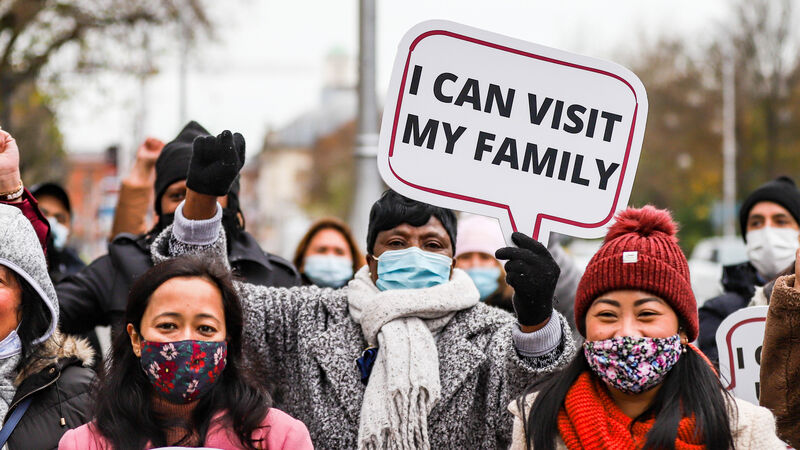Half of undocumented migrants applying to stay in Ireland come from Brazil, China, and Pakistan

Undocumented migrants and their supporters at a rally at Government Buildings last December celebrating the scheme to regularise the status of long-term undocumented migrants. File picture: Damien Storan










